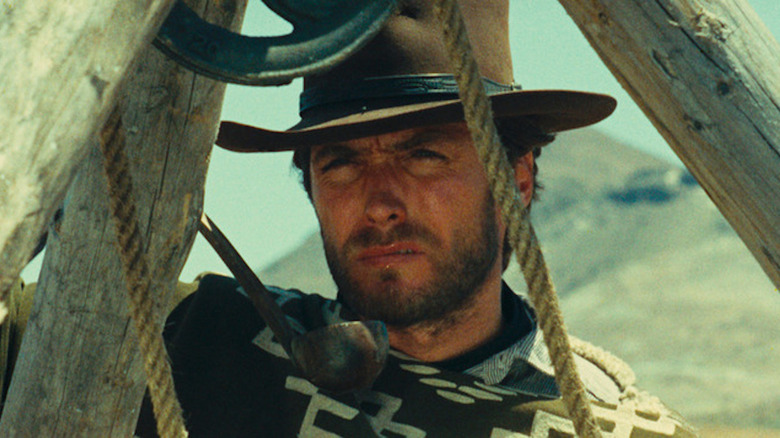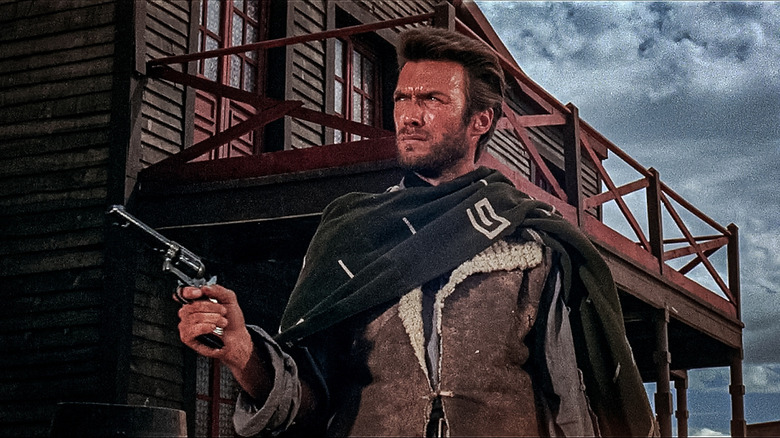Clint Eastwood & Sergio Leone Connected Through Two Words On The Dollars Trilogy
We may receive a commission on purchases made from links.
The year was 1963, and Clint Eastwood was tired of playing a Western hero. As Rowdy Yates on CBS' "Rawhide," he was stuck in a flavorless rut of white-hat derring-do, herding cattle and being an altogether swell guy while contending with stock genre villains. There was a future in this, yes, but it would require Eastwood to play the same note over and over until he became a lasso-wielding self-parody.
So, when he wrapped his fifth season of "Rawhide," he accepted an offer to make a big screen Western with a promising Italian director in Spain. That film was "A Fistful of Dollars," and all it did was launch the "Spaghetti Western" trend, which, along with the revisionist American works of Sam Peckinpah, extended the popularity of the genre for a solid decade.
"A Fistful of Dollars" was not, on the surface, rife with critical potential, and, indeed, many reviewers trashed the movie for being excessively violent and utterly amoral (a strange charge that was never leveled at Akira Kurosawa's "Yojimbo," which Leone unapologetically ripped off). But moviegoers the world over, bored with the tall-in-the-saddle heroics of John Wayne, flocked to the movie. And while some were turned off by the dubbed dialogue (which didn't always sync up with the actors' flapping lips), they dug the gritty, sweaty Italian aesthetic.
This is because Leone spoke fluent Western, which was evidently good enough for Eastwood, who could only communicate with his Italian director via a total of two words.
A language barrier blasted down with blazing pistols
In a 1977 interview with the BBC, Eastwood fondly recalled his time shooting "A Fistful of Dollars" in Spain. In doing so, he remembered having a very limited rapport with Leone.
As Eastwood told the BBC:
"I knew 'arrivederci' and 'buongiorno' and [Leone] knew 'goodbye' and 'hello' and that was it. Then he learned a little English and I learned a little Italian –- and between, a little Spanish –- and we kind of just fudged our way along."
Oh, how they fudged! While I think "A Fistful of Dollars" is more "significant" than "good," "For a Few Dollars More" and "The Good, the Bad and the Ugly" are stone-cold masterpieces. They didn't do much for Eastwood's reputation as an actor (some critics thought he'd achieved instant self-parody with his ultra-laconic persona), but audiences dug the cut of his serape. By the end of the 1960s, Eastwood was one of the biggest stars in Hollywood –- and on the cusp of becoming arguably the biggest with 1971's "Dirty Harry." His Italian might've been rough, but the money these movies made spoke loud and clear.

